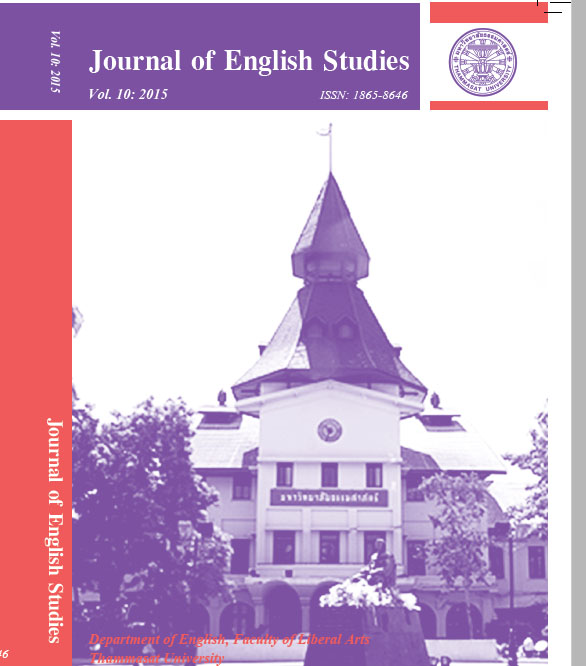Effects of a Corpus-Based Instructional Method on Students’ Learning of Abstract Writing: A Case Study of an EAP Course for Engineering Students
Main Article Content
Abstract
The Corpus-based method has played a vital role in language
teaching for more than four decades. A number of previous studies
revealed its positive outcomes on language teaching and learning in
various aspects such as on increasing students’ vocabulary, raising
their awareness of language use, developing their reading and writing
skills in either general English courses or English for Specific Purposes
or English for Academic Purposes courses (Johns, 1991a; Gilquinet
al., 2010; Charles, 2012). However, to the best of the researcher’s
knowledge, most of the previous studies were conducted with
high-proficiency students rather than low-proficiency students. None
of these studies reported the effects of the corpus-based method on
the non-native engineering students who have low-proficiency in
English. Moreover, none of these studies revealed how to make the
corpus-based method work effectively with this group of students.
Accordingly, the present study was conducted to investigate the effects
of the corpus-based method on low-proficiency engineering students
and revealed their behaviors of learning through the corpus-based
method in order to develop their abstract writing ability, thence
recognizing the use of significant linguistic features in journal abstracts
and using them correctly when writing their own abstracts. The
participants were 100 low-proficiency electrical engineering students
who studied in an EAP course from a private university in Bangkok.
The mixed method approach was used to collect data. Quantitative
data was collected using a pre-test, a post-test, and questionnaires;
and qualitative data was collected using interviews, student journals
and teacher observations. The results revealed that the corpus-based
method provides positive effects on low-proficiency engineering
students in recognizing uses of significant linguistic features of the
abstracts and in using the significant linguistic features correctly
in composing an abstract. Besides, the students could develop their
Data-Driven Learning Skills while learning through the corpus-based
method. In addition, the students had rather positive attitudes towards
this method. The findings from the present study will be useful for
teachers or course designers in developing a pedagogical model of a
corpus-based instructional method for low-proficiency students in
developing their writing skills, especially in writing English for specific
academic purposes.
Keywords: Data-Driven Learning, corpora, EAP writing, abstract,
low-proficient students

